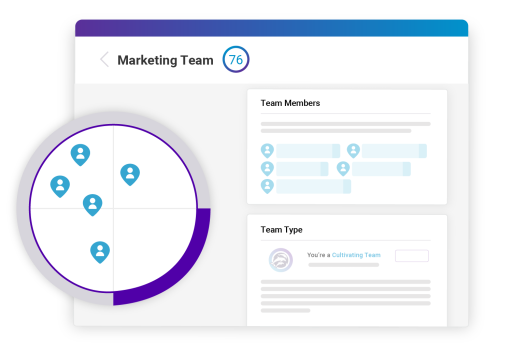CLIENT NEWSLETTER JUNE 2023: TEAM SESSIONS, DEVELOP YOUR MANAERS, CAN YOU IMPROVE YOUR COGNITIVE ABILITY, THE E FACTOR, THE ROLE OF THE PI SOFTWARE SUPER USER

PI team sessions facilitated by Humanostics
Running a team session based on people’s PI profile can be a powerful way of creating awareness around different drives, needs and work styles within a team. Team members will increase their self-awareness and gain insights into the strengths and preferences of their co-workers, allowing for better collaboration, communication and engagement. Humanostics offers facilitated team sessions in different formats and our experienced consultants are happy to tailor the content to cater for your desired outcome. Contact us to learn more about the options and pricing.
Can you improve your general cognitive ability?
The short answer is no. The PI Cognitive Assessment measures an individual’s general cognitive ability, which tells us how fast the person can be expected to acquire new knowledge. This factor is stable throughout adulthood and cannot be improved with any kind of practice. If a person scores higher on the PI CA the second time they take the assessment, it is most often because they have familiarised themselves with the format of the CA (the layout and navigation, the timer, the types of questions, etc.), allowing them to focus entirely on answering the questions. Other reasons for a higher score the second time around could be that the assessment taker was interrupted during their first attempt, that they were unfocused or tired, or that they chose a second language the first time and their native language the second time. In any case, the highest score can be considered the most accurate reflection of how fast they can be expected to acquire new knowledge. We recommend using the PI Cognitive Sample Questions to prepare for the PI CA – a link to these is automatically included in the email invitations that go out from PI Software.
What does the E Factor measure?
On the Synthesis graph, you’ll see an additional factor – the E factor. This is a measure of what kind of data the individual uses to base their decision on. If the E is high, the person tends to be more objective. They will want to examine facts, check sources, and look to the data to guide their decisions. If the E is low, the person is more subjective. Their ‘gut feeling’ is quite important, and they are less likely to seek out all sides of the story prior to making decisions. They will rely more on what feels right, even if there aren’t numbers to back it up. An E factor around the midpoint indicates that the person is likely to base their decision on a combination of objective and subjective factors, for example by narrowing down their options using objective data and then making the final decision based on what they like better.

DEVELOP YOUR MANAGERS WITH PI
In many organisations, managers and employees lack the necessary people data insights to develop self-awareness and awareness of the behavioural drives and needs of others. You can use the PI INSPIRE tools and reports to develop your managers, helping everyone work together at their best. Check out the short video below for tips on how to engage leaders at every level.
THE ROLE OF THE PI SUPER USER
Every organisation that uses the PI tools should appoint at least one super user who has the responsibility for user management and making sure that the system is GDPR compliant. Among other things, these responsibilities include creating a folder hierarchy for storing data in PI Software, creating new users with the appropriate role and folder access, and ensuring a process for anonymising the data of candidates who are not hired and employees who leave the organisation. For more information on GDPR compliance, click HERE.

















